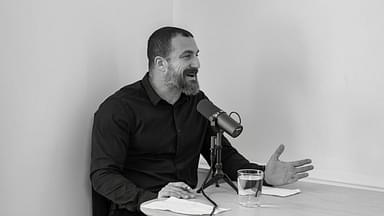Exercise is often considered a necessity to build good physical health and immunity. The idea remains to get the blood pumping for all body parts to function well. However, Dr. Andrew Huberman has now highlighted a possible connection between exercising and cognitive functioning, especially as a quick fix.
In his recent podcast with neurologist Dr. Mark D’Esposito, the neuroscientist discussed the possibility of exercise improving cognitive functioning. More importantly, he wanted to know if exercise could quickly alter the state of the brain after a workout session.
Performing cardiovascular exercises is quite popular for getting a good pump across the body. It is essentially an efficient way to ensure an abundance of blood supply to different organs, including the brain. However, there were two aspects that Dr. Huberman was curious about.
The neuroscientist questioned Dr. D’Esposito if exercises other than cardiovascular workouts could help with cognitive functioning. Also, if these exercises did help the brain, could it do so within a few hours?
“In all of the groups around the country that are trying to develop cognitive therapies they they often use aerobic exercise as as as another type of therapy…and they can find it just as effective as cognitive therapy.”
Aerobic exercises are slowly becoming more approachable, according to Dr. D’Esposito. In a shift of ideologies that he observed among neurologists across his career, more and more professionals are opening up towards exercise as a tool for better brain development.
“Now we’re talking about exercise and nutrition and sleep, and it’s all becoming sort of part of our package of how we’re going to help our patients.”
An important thing to note is that intense exercise for a longer period could hamper cognition. Therefore, it was essential to find a middle point that served an appropriate amount of intensity and improved brain activity.
Dr. Andrew Huberman revealed how exercise was one of the pillars of well-being
To ensure a holistic development of the body and mind, certain essentials were important. Neuroscientist Dr. Andrew Huberman explained that the physical and mental well-being of an individual stood on eight pillars, and exercise was one of them.
Sleep, sunlight, exercise, stress management, relationships, nutrition, oral and gut health, and spiritual growth were the pillars that kept an individual grounded. Apart from its visible effects on physical health, we now know the importance of exercise for a person’s cognitive development.





